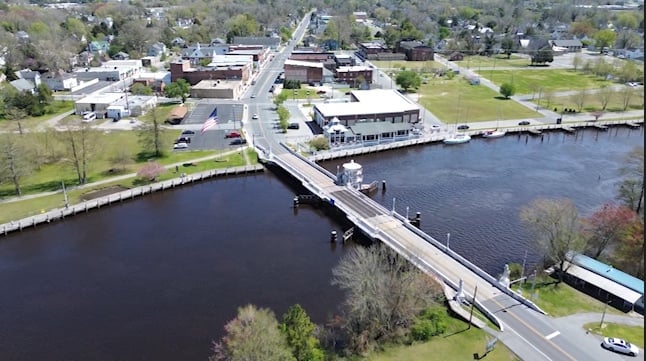Cambridge woman on a mission to help grieving families through passion project
CAMBRIDGE, Md. – Cambridge. It’s a city known for its rich history and family trees that date back centuries.
But woven throughout the streets are also stories of trauma and loss.
“I was a junior in High school [when] a lot of these murders happened. I knew the families, or I knew the children,” said filmmaker, Caneka Jenkins.
A City with a Rough Past
Jenkins was born in Cambridge and raised in her family home on Pine Street. She said she had a pretty average upbringing, yet, some of her fondest memories are plagued by reminders of horrific crimes that took place in her own community.
“Growing up on this street, it affected my life, and it was things that when it’s personally not affecting you, you can put it away and come back to it,” Jenkins said.
Those things Jenkins refers to are unsolved cases of four Cambridge women: Chovonne Doleberry, Margo White, Bonnie Sharp and Joyce Carr. Each case has been cold for decades, with one thing in common: all of the victims were Black women.
“When I think about it, it seems like a lot of these murders are being solved when they’re Caucasian, or of a different race,” Jenkins said. “Is this important for everyone? I want these families to know that their loved ones were important and that we haven’t forgotten them.”
Present-day Grief and a Search for Answers
To bring these cases back to the surface and try to track down some answers, Jenkins came up with an idea about a year ago. She wanted to film a documentary featuring the families of each victim, so they could tell their stories and hopefully lead to a break in their cases.
“30 years ago, they thought that the police failed them, they still think the police failed them,” Jenkins said. “I know that a lot of the officers that were here back then, and are not here now, but something can be done, and they feel like they were failed 30 years ago. I don’t want them to be failed again.”
But the police need help from the public, someone to come forward with information to help solve these cases. So, Jenkins got to work. She already had familial ties to some, and others, she tracked down through Facebook. After months of planning, the lights finally went on and the camera started rolling. Ready to break her silence, Joyce Carr’s daughter, Lakisha Moore, shared the vivid memory she has of the last time she saw her mother alive.
“She went out with friends, close friends, on New Years Eve, to celebrate,” Moore said. “She was dropped off and never returned to her family and her children.”
Moore has been desperate for answers since 1994. When Jenkins approached her about the documentary, she knew she had to participate.
“When she came to me about it and talked to me about it, I thought that’s going to be my way of reaching out my family, reaching out and to have me some closure,” Moore said. “Not that I’m a detective that’s going to solve it, but to get the word out to other families, so this don’t happen to someone else.”
A Future of Finding Solace
One by one, family members sat in front of the camera and shared the stories of their mothers, sisters, aunts, friends. All in hopes of reaching someone, or something, that could break the cases wide open.
“These ladies, they were somebody,” Jenkins said. “No matter what you thought about their lifestyle, no matter what you thought about them, they were somebody…They had families, they were loved, and this is going to be a documentary to bring some traction back to these cases,” Jenkins added.
With the first day of production completed, Jenkins hopes to premiere the documentary in June, to help get the word out on these four women.


